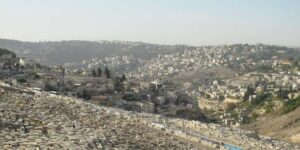Clouded Legacy: The Lives of Ariel Sharon
Since 2006, former Israeli Prime Minister Ariel Sharon was in the news regularly, though less frequently as the years passed, not for what he’d done, but for what he hadn’t done until this week. He died. I write this neither to neither praise nor scorn him, but to share some of the range of views Israelis had, and have, about Sharon’s life and legacy.
In January of 2006, Sharon suffered a massive stroke an because of the outstanding first response afforded him by Israel’s EMTs and then doctors at two top hospitals, he was able to be kept alive, albeit in a vegetative state. His family and many devoted friends prayed for a miracle.
With each report of Sharon’s condition, we were reminded of his life and achievements. Over the years, living in Israel and getting to know a wide spectrum of others, I heard the gamut of thoughts and feelings about him. The EMTs who were assigned to Sharon’s care as prime minister speak of him as a great and kind man. His driver for years was like a son in the Sharon home. Soldiers who served with him or under his command speak of a heroic, brilliant and aggressive military leader who commanded trust and respect. He was sometimes referred to as “the bulldozer.”
As defense minister, Sharon oversaw Israel’s evacuation from Sinai which he fought so hard to conquer, and commanded the 1982 Lebanon war, conquering southern Lebanon to free Israelis in the north living under the threat of rocket fire and terrorist acts daily. That war is often referred to Israel’s Vietnam, and Sharon’s downfall came in being blamed for not preventing a massacre by one Arab group against another in Lebanon in the early days of the war.
But Sharon was rehabilitated and the citizens who voted for him when he became Prime Minister as head of the Likud party speak of betrayal when he split Likud to form the Kadima party, and then go on to implement Israel’s unilateral withdrawal from Gaza and parts of Samaria. Thousands of residents of the communities that were abandoned and then buried into the ground, many still recovering from that trauma, blame Sharon for their situation. More than a million Israelis living within range of rocket fire from Gaza don’t have to think too far back to remember that before Sharon withdrew Israelis from Gaza, threats of rocket fire were limited to a few immediate border areas.
A joke about him waking up was very popular under the tenure of his successor, Prime Minister Olmert. One day he woke up from his coma and asked the security guard by his side what happened. Upon hearing all the bad news that took place since his incapacitation, Sharon quietly whispered that he’d rather be in a coma, and quietly slipped back into unconsciousness.
As news of his physical demise in 2006, and again this week in anticipation of his death, made headlines, the range of memories and emotions about Sharon were expressed and compared and contrasted. A man who once led the movement for Jewish return to biblical Judea and Samaria and was responsible for building new communities there was the same man who evacuated nearly 10,000 residents of more than a dozen of these communities in 2005.
As a soldier, the man who famously led battles from Israel’s 1948 War of Independence to the 1973 Yom Kippur War (a military history and personal biography that’s well worth the read), was also responsible as a politician for leading the 1982 battle to free Israel’s north from under the cloud of the terrorist state in Lebanon. This got Israel entrenched in what became a quagmire that took two decades to end. Since then, the terrorist threat in Lebanon has increased, we had a Second Lebanon War, and they now having a longer range and wider reach.
It’s not uncommon this week to hear it said that as a consequence of Sharon’s unilaterally withdrawing Israel from Gaza that left so many Israelis homeless and without means of employment, even still several years later, and in leaving a vacuum that would see the creation of a Hamas terrorist state emerge shortly thereafter, Sharon’s stroke and incapacitation were either as a Divine punishment or way to prevent him from doing worse.
Not being God, I don’t have an answer to that. Many who hold this view have kept quiet out of respect for the man and the things he did that were positive, and others have been vocal drawing public backlash that, at least, it was too soon to say publically before Sharon was even buried.
What I do know is that Israel and the Jewish people, and all those who truly love Israel, owe Ariel Sharon a great debt of gratitude for leading Israel militarily at a time when wars were waged against us that could have led to much worse outcomes. There is no doubt, Ariel Sharon was a military hero. Because if his prowess, bravery, and bucking the system, he made enemies along the way, but he definitely kept Israel and Israelis safe.
In reflecting on his life, as for the mistakes he made, there is a common undertone that we have learned from these, never to repeat them again. Let us hope so.
Ariel Sharon is mourned by the spectrum of Israelis including religious and secular, and Arabs and Jews. There’s an irony that among those who are not mourning, are more right wing Jews who cannot get beyond Sharon’s evacuation from Gaza, both on military and nationalist grounds. And from the opposite side of the spectrum, Arabs are celebrating Sharon’s death, saying, among other things, that he was not a man of peace. Yet, Sharon’s evacuation of Gaza in fact gave the Arabs the closest thing to the opportunity to a state which, rather than building and prospering, they used as a launching pad for terrorism.
Ariel Sharon was buried on his ranch, next to his wife, Lilly. Because this is near the Gaza border, and with all the dignitaries from Israel and abroad, security was especially tight. Ironically, part of the security threat of rockets being fired from nearby Gaza is a consequence of the withdrawal that he implemented.
God is Sharon’s ultimate judge. But he is to be thanked and remembered fondly for all that he did that was good and, even making mistakes, I am sure he believed them to be in the best interest of Israel.







































